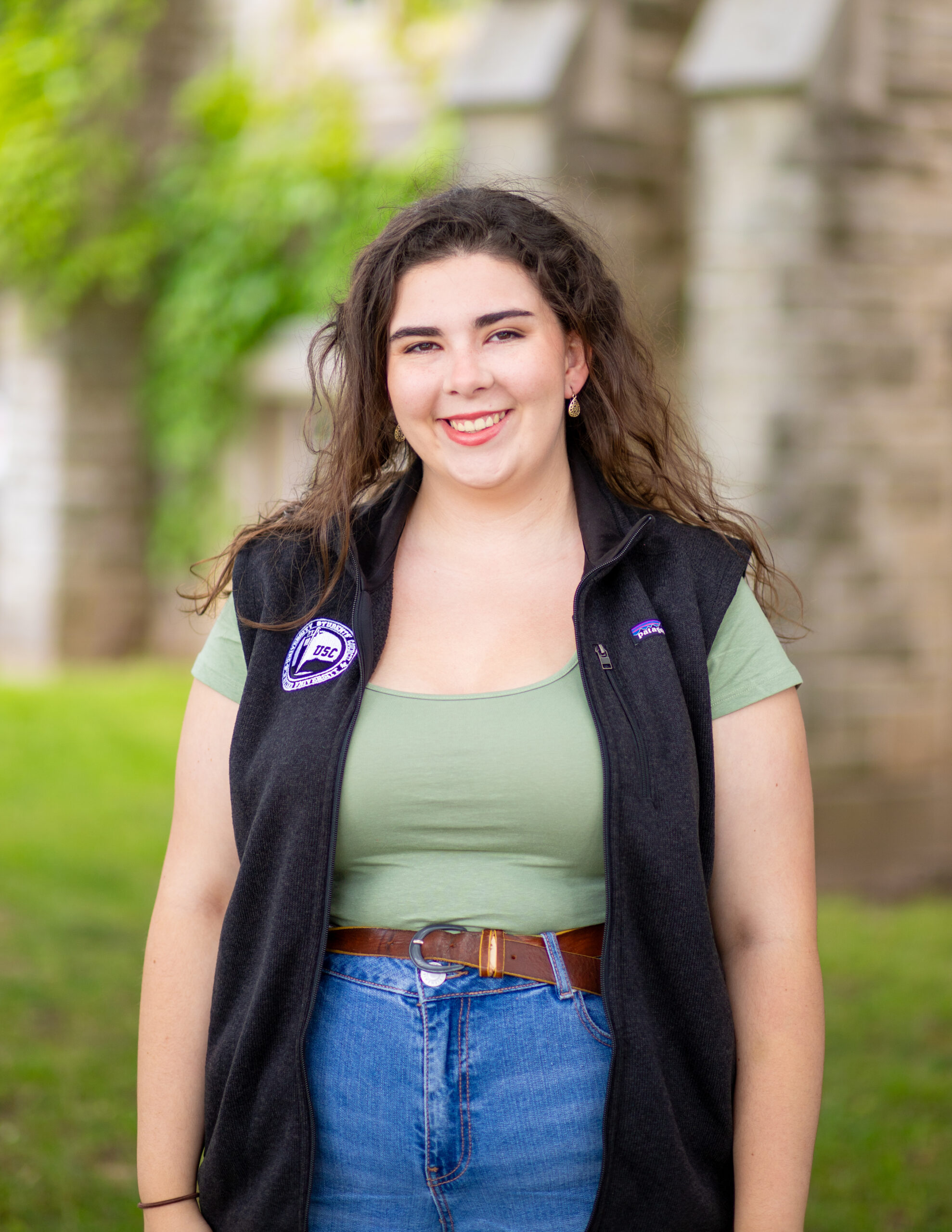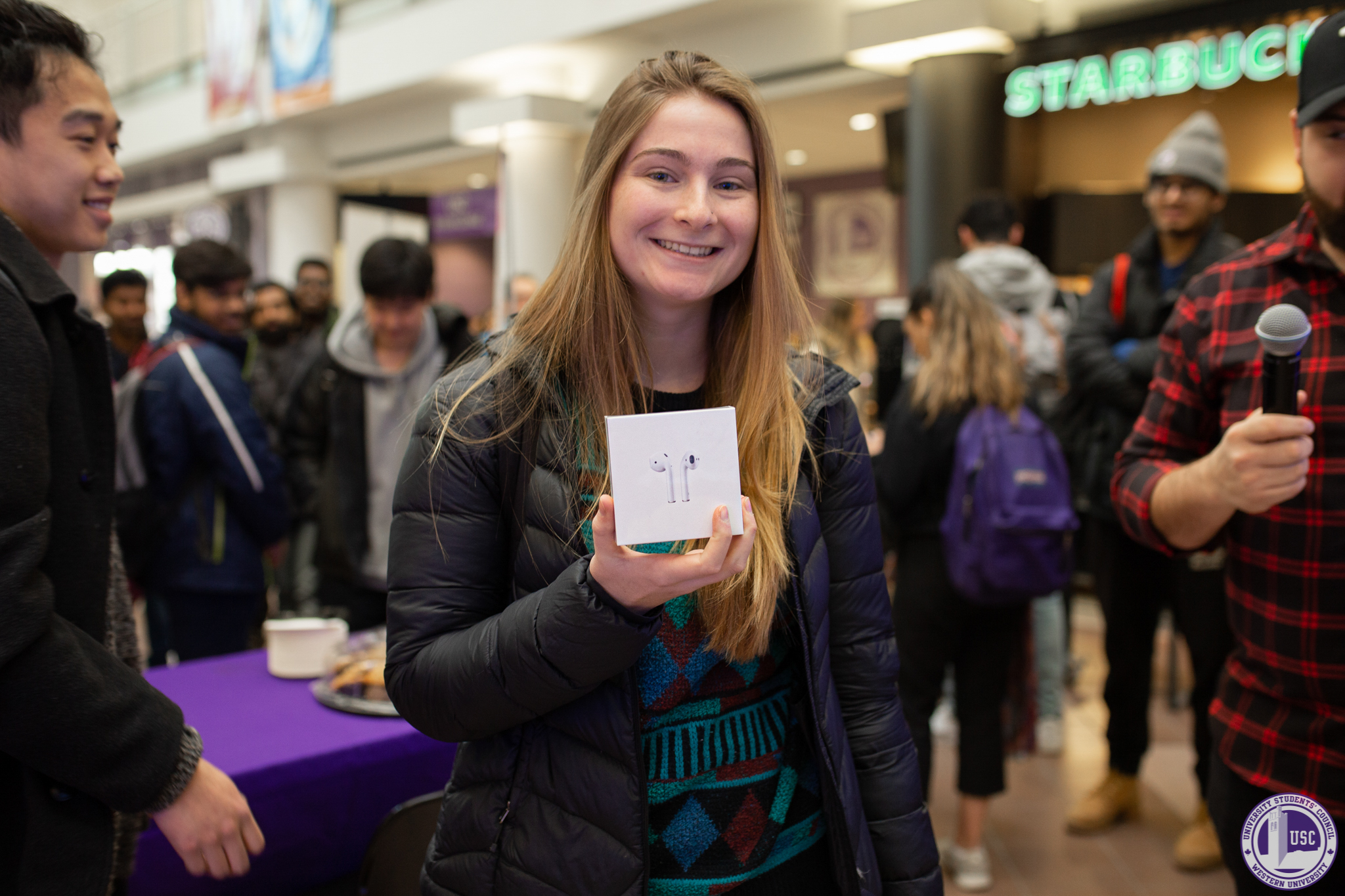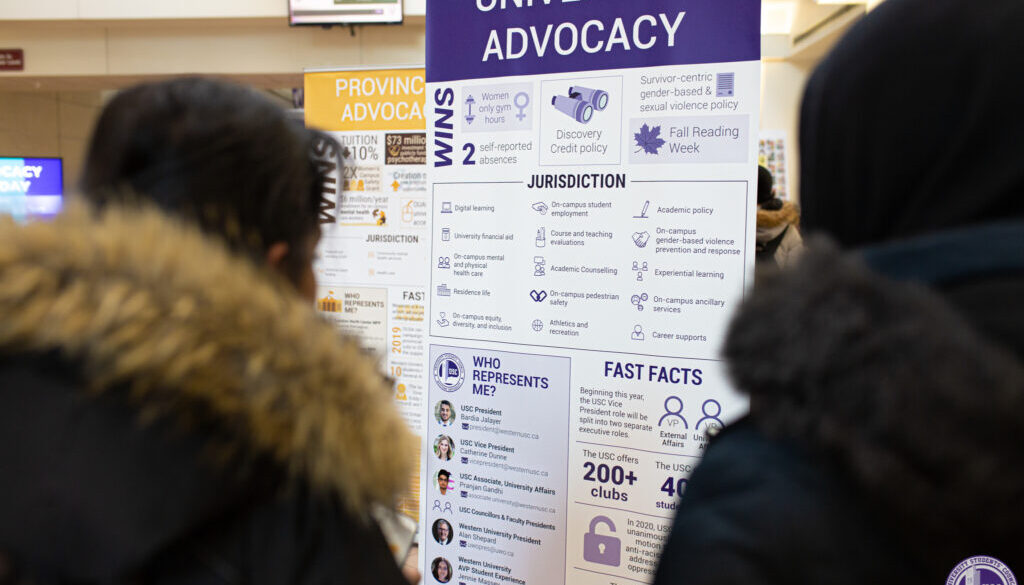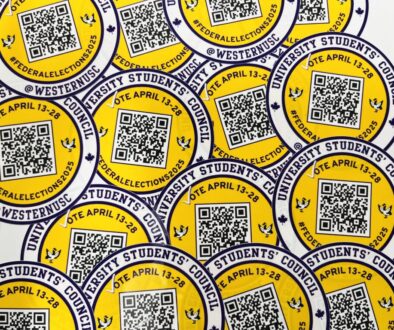The BTS of USC’s External Advocacy
You might have come across a few headlines detailing Canada’s Minister of Housing, Sean Fraser, visiting our campus earlier this semester. Fraser’s visit with the University Students’ Council concerned the ongoing student housing crisis in the country – an area of advocacy led by the USC’s Vice President of External Affairs, Emily Poirier.
Poirer’s role as VPEA seeks to uphold and strengthen ties with the community and the government to effectively advocate on behalf of students’ problems before local, provincial, and federal decision-makers. In order to bolster the impact of student advocacy, the VPEA collaborates with stakeholders to advance student interests and foster student civic engagement in the community.
The student body plays a much more significant role in catalyzing the USC’s advocacy than you would think. “The area of advocacy we choose to focus on is very much based on what I’m hearing from students. For me, housing was something that I came across a lot during my consultations when I was running for External Affairs,” says Poirier.
“Since I’m elected by Council, part of that means doing consultations and talking to councillors. I heard very, very often that students were not being able to find affordable, adequate housing that was close enough to campus,” the VPEA explains.

Councillors are students, elected by other students to represent the community’s interests. They continue to be of paramount importance within the realm of USC’s advocacy. “They’re the ones who are in spaces we [USC Executives] aren’t in and who often will have a really good understanding of how advocacy works or how to translate things into advocacy from issues they are hearing” Poirier adds.
The USC prioritizes advocacy efforts in accordance with student consultations, timeliness, and previous advocacy efforts whilst ensuring consistency.The USC has been working on issues such as transit, affordability, and gender based violence, in the form of policy papers crafted over years of advocacy. Efforts are also heavily based on the current political climate; advocating for affordable housing hasn’t been exclusive to students, and its momentum is driven by discussions within all forms of governments and populations.

Housing is an effort the USC started from scratch this academic year. “We didn’t have any existing stances on housing until this year. We start with preliminary research through the community and other schools, do some digging to understand core aspects of the issue and take some of these things to the decision makers. Based on their thoughts, we’ll either make more formal recommendations, pass them through council or we go back to the drawing board and do more research by collaborating with the decision makers” the VPEA adds.
Preliminary research done by the USC relies on quantitative data collected through Ontario Uuniversity Student Alliance and other organizations. This data is then inspected through student consultations and surveys to observe if Western students are outliers or in alignment with the findings. Policy papers are then crafted to pass through council in order for the USC to advocate for the issue at hand.
“The qualitative data we collect for policy papers is more about students’ personal experiences. Whether that’s having discussions with them at focus groups, booths, or face to face interviews, it adds more color to what we are seeing. The quantitative data we collect from students tends to be more digital” explains Poirier.

Announcements for collecting this data are posted either on USC’s social media or through emails. Data collection from students pertaining to housing is still in the works – keep an eye out for focus groups and student booths around campus soon!
Getting involved through data collection or council is a student pathway into the advocacy the USC does for the student body; make your voice heard and see the change you fight for!





